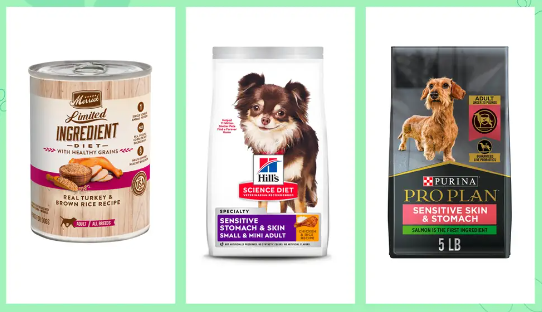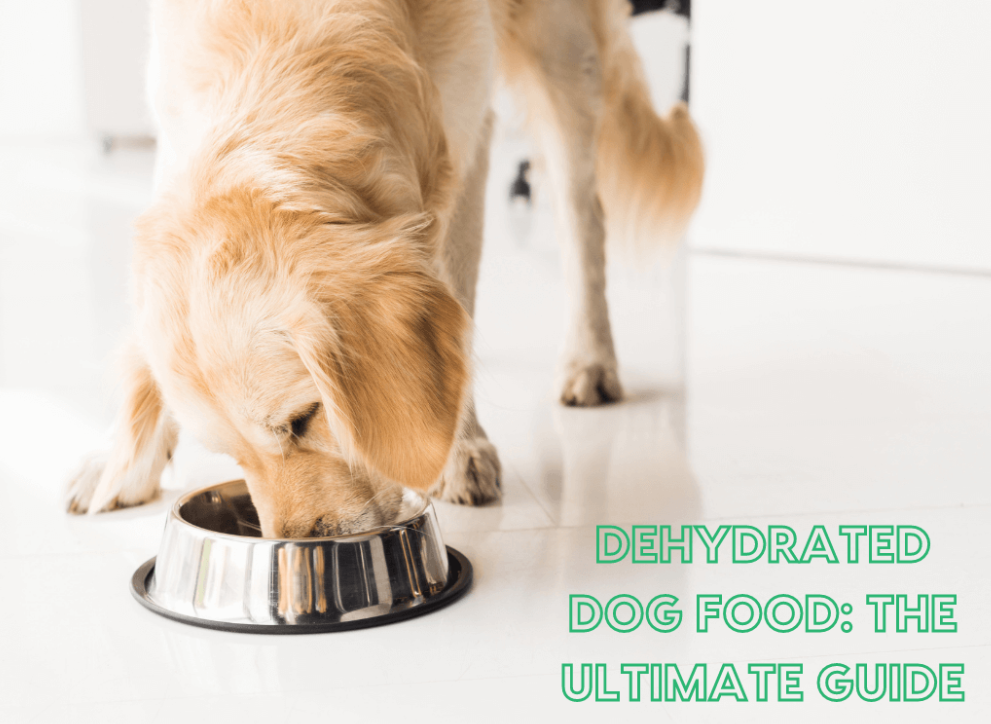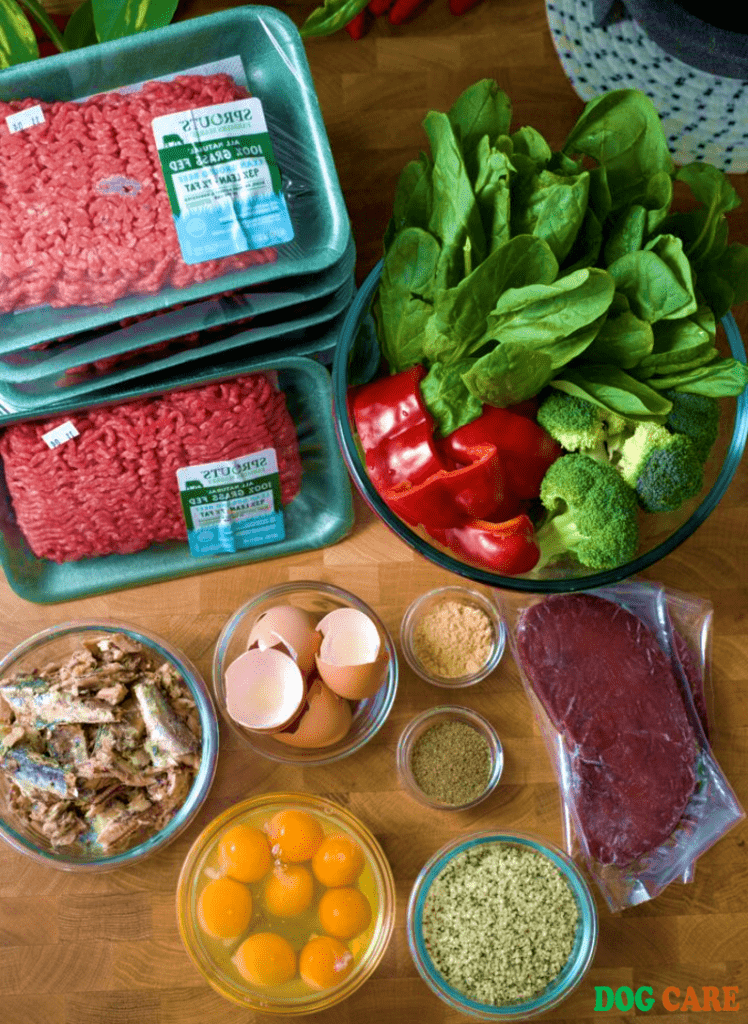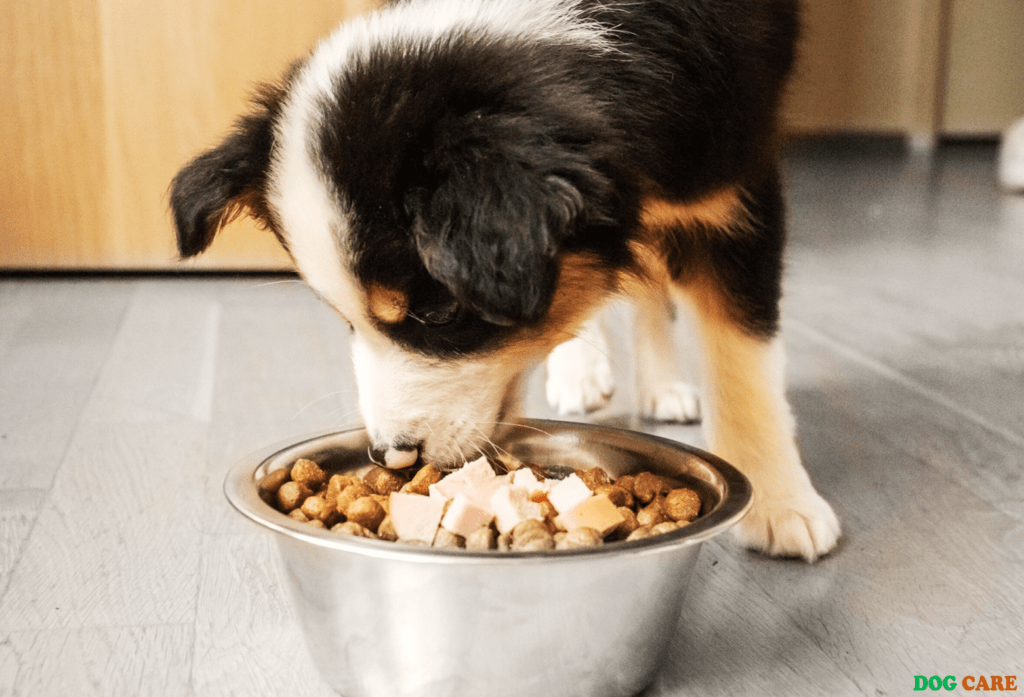The Best Dog Food for Small Dogs is specially formulated to meet their unique nutritional needs. It contains high-quality protein, easily digestible carbohydrates, and essential vitamins and minerals.
Additionally, it is important to choose a dog food that is appropriate for your small dog’s age, size, and health conditions. Small dogs have faster metabolisms and smaller stomachs, so they require a diet that is nutrient-rich and calorie-dense to support their energy needs.
Feeding your small dog a well-balanced and nutritionally complete diet will help promote their overall health, immune system, and proper growth and development.

Factors To Consider : Best Dog Food for Small Dogs
When selecting the best dog food for small dogs, it is important to consider factors such as breed-specific nutritional needs, ingredient quality, and portion size. Balancing these factors will ensure optimal health and well-being for your furry companion.
Size And Breed
When choosing the best dog food for small dogs, it is vital to consider their size and breed. These factors play a significant role in determining their nutritional needs and the specific diet that will best support their overall health and well-being.
Small dogs, such as Chihuahuas, Yorkshire Terriers, and Pomeranians, have unique dietary requirements that differ from larger breeds. Due to their smaller bodies, they have higher metabolisms and may require more frequent meals to maintain stable blood sugar levels, preventing hypoglycemia.
In addition, small dogs tend to have smaller mouths and teeth, which can pose challenges when it comes to chewing and digesting certain types of kibble. Therefore, opting for smaller-sized kibble or wet foods that are easier to chew and swallow is essential to ensure proper nutrition and prevent dental issues.
Health Conditions
Another crucial factor to consider when selecting the best dog food for small dogs is their specific health conditions. Some small breeds are more prone to certain health issues such as allergies, joint problems, or sensitive stomachs.
If your small dog suffers from allergies, selecting a dog food that is grain-free and contains hypoallergenic ingredients can help alleviate symptoms. It’s important to read the labels carefully and avoid common allergens such as corn, wheat, soy, and artificial additives.
Ingredient Quality
The quality of ingredients in your small dog’s food can greatly impact their overall health and well-being. Opting for dog foods that contain premium, high-quality ingredients is essential to providing them with the necessary nutrients.
Look for dog foods that list real meat, such as chicken, beef, or fish, as the primary ingredient. Avoid foods that consist mainly of fillers, by-products, or artificial additives. These low-quality ingredients may not provide the essential nutrients your small dog needs and can lead to digestive issues, obesity, and other health problems.
Additionally, consider the inclusion of fruits, vegetables, and whole grains in the dog food. These ingredients can provide important vitamins, minerals, fiber, and antioxidants that support your small dog’s immune system and promote optimal health.

Nutritional Needs Of Small Dogs
Small dogs have unique nutritional needs that differ from larger breeds. Due to their small size, they require food that provides a concentrated source of nutrients to support their growth, energy, and overall health. In this article, we will explore the specific nutritional requirements of small dogs and guide you towards the best dog food options to meet these needs.
Energy Requirements
Small dogs may be small in size, but they are full of energy and require an adequate amount of calories to sustain their active lifestyles. Their energy requirements are higher compared to larger breeds due to their faster metabolism. As a result, it is essential to provide them with a dog food formula that is rich in high-quality proteins, fats, and carbohydrates to fuel their energy levels.
Protein And Amino Acids
Protein plays a crucial role in the overall health and development of small dogs. It aids in muscle growth, repair, and maintenance. Additionally, protein provides essential amino acids that are necessary for various physiological processes in their bodies. When choosing dog food for small dogs, opt for formulas that contain high-quality animal-based proteins such as chicken, beef, or fish. These proteins are more easily digestible and provide the necessary amino acids to support your small dog’s wellbeing.
Vitamins And Minerals
Vitamins and minerals are essential for the proper functioning of a small dog’s body. These nutrients are involved in various metabolic processes, maintaining healthy skin, coat, and immune system. Dog food formulated for small breeds should contain an adequate amount of vitamins and minerals relevant to their needs. Look for formulas that include vitamin A for vision health, vitamin E for antioxidant support, and minerals like calcium and phosphorus for bone strength.
| Nutritional Component | Recommended Amount |
|---|---|
| Protein | 25-30% of daily calorie intake |
| Fat | 10-15% of daily calorie intake |
| Carbohydrates | Up to 50% of daily calorie intake |
| Vitamin A | 5,000-8,000 IU per kilogram of body weight |
| Vitamin E | 25-50 IU per kilogram of body weight |
| Calcium | 1-2% of dry matter in the diet |
| Phosphorus | 0.8% of dry matter in the diet |
In summary, small dogs have specific nutritional needs that require a carefully balanced diet. Providing them with a high-quality dog food formula that meets their energy requirements, supplies adequate proteins and amino acids, and includes essential vitamins and minerals is vital for their overall health and wellbeing.
Types Of Dog Food
When it comes to choosing the best food for your small dog, understanding the different types of dog food available in the market is essential. Each type has its own benefits and considerations, and by knowing what sets them apart, you can make an informed decision for your furry friend.
Dry Food
Dry dog food, also known as kibble, is one of the most popular options among pet owners. It is convenient to store, has a long shelf life, and provides essential nutrients to keep your small dog healthy. Additionally, the hard texture of dry food helps promote dental health by reducing plaque and tartar buildup.
When purchasing dry food for your small dog, look for options specifically formulated for their size and breed. These formulations usually feature smaller kibble sizes and adjusted nutrient levels. Pay attention to the ingredient list as well, opting for high-quality proteins and avoiding artificial additives or fillers.
Wet Food
Wet dog food, often found in cans or pouches, is another popular choice for small dogs. It is made up of a higher moisture content, which can be beneficial for pups who struggle to stay hydrated or have dental issues. The soft texture of wet food makes it easier to chew and digest, especially for older or small-breed dogs.
When selecting wet food for your small dog, look for options that contain real meat as the primary ingredient. Avoid those that are high in fillers or artificial additives. It’s also important to note that wet food has a shorter shelf life once opened, so consider portion sizes to minimize waste.
Semi-moist Food
Semi-moist dog food falls between dry and wet food in terms of moisture content. It usually comes in small and soft shapes, appealing to picky eaters and making it easy for small dogs to chew. However, it’s important to note that compared to dry and wet food, semi-moist food often contains higher levels of artificial preservatives and added sugars. Therefore, it is best to use it as an occasional treat rather than a primary diet.
Be aware that the convenience of semi-moist food doesn’t replace the benefits of a balanced diet with dry or wet food. Additionally, due to its high moisture content, it’s essential to store semi-moist food properly to prevent mold growth or spoilage.
Understanding the different types of dog food available allows you to make an educated decision that suits your small dog’s needs and preferences. Whether you opt for dry food, wet food, or semi-moist food, ensure it meets the nutritional requirements of your furry companion while taking into account any specific health considerations they may have.
Top Small Dog Food Brands
If you have a small dog, choosing the right dog food is crucial for their overall health and well-being. To help you make an informed decision, we have compiled a list of the top small dog food brands available in the market. These brands offer high-quality ingredients, balanced nutrition, and are specifically formulated to meet the unique needs of small dog breeds. Here are some of the best small dog food brands currently available:
Hill’s Science Diet
Known for its commitment to using natural and wholesome ingredients, Hill’s Science Diet has earned a reputation for providing top-of-the-line dog food for small dogs. With a focus on real meat as the primary ingredient, Hill’s Science Diet ensures your small dog gets the protein they need to stay active and maintain healthy muscle mass. Additionally, the brand includes essential vitamins, minerals, and antioxidants to support your dog’s immune system and overall well-being. Hill’s Science Diet also offers a variety of flavors and formulations to cater to different small dog breeds, ensuring there is something for every palate and dietary requirement.
Purina Pro Plan
With a strong emphasis on nutrition and flavor, Purina Pro Plan is another excellent choice for small dog owners. This brand offers a range of specially formulated dog food for small breeds, tailored to meet their unique nutritional needs. Purina Pro Plan sources high-quality ingredients and combines them to create a well-balanced meal that supports your dog’s health and vitality. Whether your small dog prefers wet or dry food, Purina Pro Plan has a wide selection of options to choose from. From grain-free recipes to specialized formulas for sensitive stomachs or allergies, Brand B has your small dog covered.
Purina Beneful IncrediBites
If you’re looking for a small dog food brand that prides itself on using only premium ingredients, look no further than Purina Beneful IncrediBites. This brand goes above and beyond to ensure the quality and safety of their products, using real meat, whole grains, and fruits and vegetables in their recipes. Purina Beneful IncrediBites understands the importance of a healthy digestive system, which is why they include prebiotics and probiotics in their small dog food formulas. These beneficial bacteria promote a healthy gut and aid in nutrient absorption. Purina Beneful IncrediBites also offers small breed-specific formulas that address the unique dietary requirements of small dogs, helping them thrive and live a long and healthy life.
When it comes to choosing the best dog food for your small dog, it’s essential to prioritize quality and nutritional value. These top small dog food brands, Brand A, Brand B, and Brand C, have consistently delivered outstanding products that cater to the specific needs of small dog breeds. Consider your dog’s individual preferences and dietary requirements when selecting the perfect brand for your furry friend.
Feeding Guide
Looking for the best dog food for small dogs? Our feeding guide provides essential tips and recommendations to keep your furry friend healthy and happy. Discover the perfect nutrition for your pint-sized companion.
Portion Sizes
Feeding Frequency
Food Transition
Feeding your small dog the right amount of food is essential for their overall health and well-being. To ensure your furry friend gets the nutrition they need, it’s important to follow a feeding guide that includes portion sizes, feeding frequency, and a smooth food transition process.
Portion Sizes
When it comes to portion sizes, it’s crucial to find the right balance. Small dogs have different nutritional needs compared to larger breeds, so it’s important to choose a dog food formula specifically designed for small dogs.
The general guideline for portion sizes for small dogs is as follows:
| Weight of Dog | Portion Size |
|---|---|
| 2-5 lbs | 1/4 – 1/2 cup |
| 6-10 lbs | 1/2 – 3/4 cup |
| 11-15 lbs | 3/4 – 1 cup |
It’s important to note that these are general guidelines and may vary based on your dog’s activity level, metabolism, and specific brand of dog food. Always consult with your veterinarian to determine the appropriate portion size for your small dog.
Feeding Frequency
In addition to portion sizes, feeding frequency is another important factor to consider. Small dogs have higher metabolic rates, and their smaller stomachs may not be able to handle large meals all at once. It’s recommended that small dogs be fed multiple small meals throughout the day to satisfy their energy needs and prevent overeating.
The ideal feeding frequency for small dogs is three to four meals per day, evenly spaced throughout the day. This helps to maintain steady energy levels and aids in digestion.
Food Transition
If you’re transitioning your small dog to a different brand or type of dog food, it’s important to do so gradually. Sudden dietary changes can upset their sensitive stomachs and cause digestive issues. Follow this food transition guide to ensure a smooth transition:
- Start by mixing a small amount of the new food with the old food.
- Gradually increase the proportion of the new food to the old food over a period of 7-10 days.
- If your dog experiences any digestive upset during the transition, slow down the process and take more time to fully switch to the new food.
- Monitor your dog’s stool and overall health throughout the transition period.
Remember, every dog is different, and what works for one may not work for another. It’s important to observe your small dog’s behavior and consult with your veterinarian if you have any concerns or questions about their feeding habits or specific dietary needs.
Conclusion
To sum it up, finding the best dog food for small dogs is crucial for their overall health and well-being. By prioritizing high-quality ingredients, appropriate portion sizes, and specific nutritional needs, you can ensure your furry friend receives the best care.
Remember, consulting with a veterinarian and considering your dog’s individual needs will help you make the right choice. Invest in their nutrition and watch them thrive!


